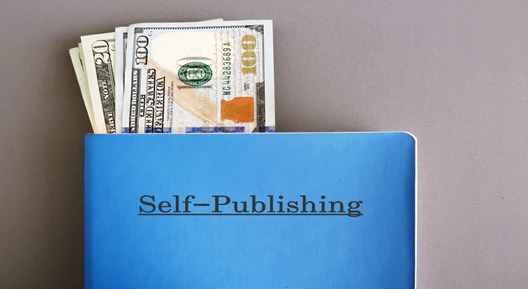Once you are ready to share your story with the world, it is crucial that you know the best way to do it. It is essential to evaluate the drawbacks and benefits of the platform you want to choose to showcase your work, particularly now, when you can reach your audience through multiple publishing methods.
When it comes to publishing methods, traditional and self publishing are two main methods to make your literary work known to your readers. However, over time, traditional publishers are losing their chokehold on the industry as self publishing is rapidly becoming preferable for around 97% of authors. More and more aspiring authors are opting to self publish their work on renowned digital platforms like Amazon Kindle and KDP (Kindle Direct Publishing).
Why Self publishing
This article will outline why self publishing is more beneficial than traditional in 2023 so you can make an informed decision when publishing your work this year.
· Complete Ownership of Your Work
Some seek financial gains, while others aim to share their ideas with the world. Many writers want to extend their literary reach by crafting supplementary online courses based on their book content, re-releasing their books in different formats or platforms, and more. However, you only have this leverage if you have complete control and ownership of your book. Self publishing offers authors this independence, freeing them from the constraints of publishing agents who might dictate the course of their literary careers. With self publishing, you can fully control your book and decide your publishing career according to your preferences and vision.
· Complete Creative Control
As a self publishing author, you have complete creative control over the content, from your book cover to the layout. While in traditional publishing, you not only sell your book but also your idea to the publishing agent, in self publishing, your view remains yours. This type of publishing empowers you to decide what you want to include or exclude
In addition, as a self published author, you not only decide the look and feel but also the target audience and marketing aspects of your book. Perhaps readers respect and welcome diverse ideas; 45% of book sales are going to indie authors.
· Higher Profit Rates
Self publishing is best for authors who publish for financial gain as they get more royalties as an indie author. Traditional publishing agents typically pay the authors a small upfront amount to purchase their book and idea. However, once the sales roll in, they start getting a small cut, often 10% to 15% of the total royalties. But with self publishing, you get most of the royalties while investing very little in marketing, production, and publishing. For instance, Amazon pays 70% of the royalties to its authors, making self publishing more lucrative for them.
· Faster to Publish
There was a time when a book needed months to get out in the market. Sometimes, it would take months to get a response to your book proposal. However, with the evolution of self publishing, the turnaround time from production to publication has become much faster. You can easily publish your book in weeks by acquiring cost-effective professional publishing services like LA Book Publishers. These online publishing services help you to make your story one of the top self published books on Amazon Kindle and Kindle Direct Publishing (KDP) whenever you want.
· No Barriers
Self publishing is becoming the new norm, mainly for the flexibility, control, and profit it provides to the authors. While authors have to go through various gatekeepers in traditional publishing, self publishing opens up the entire literary avenue for you to determine your own career as an author.
Interesting facts
Here are some interesting facts that emphasize the advantages of self publishing over traditional method:
- Tim Ferriss’s renowned book “The 4-Hour Workweek”? has sustained the bestselling rank in The Wall Street Journal and New York Times for over four years. With almost 1.5 million copies sold in 35 different languages, the book was first rejected by 26 publishing agencies. So, even though the book got the fame and acknowledgment it deserved (thanks to Ferriss, who didn’t give up on his creation), it took a lot more time than required.
- J. K Rowling is another example who got rejected by 12 publishers and was suggested to take a day job as her book wouldn’t make her the money she sought for her family. Just imagine that we would not have been able to enjoy the saga of the young boy with a light-bolt scar on his forehead if Rowling had given up on her work, discouraged by the publishing agencies.
- The Martian, Andy Weir’s sci-fi thriller, was a self published book. The story became a blockbuster movie grossing over $630 million, directed by Ridley Scott and starring Matt Damon, all rooted in a self published book.
- The self publishing domain has empowered many people with diverse backgrounds and unique perspectives who otherwise might not have been able to share their ideas with the readers. A study by FicShelf indicates that only 39% of the female author fraternity could publish their book traditionally. The larger chunk of 67% became self published authors.
- Indian-Canadian author Rupi Kaur solidified Self publishing platforms as an advocate of diversity by achieving 8 million sold copies of her first two poetry books, Milk and Honey (2014) and The Sun and Her Flowers (2017). These are easily two of the best books on self publishing platforms, debuting at #1 on the global bestsellers list.
The Final Verdict
Self publishing is a rising publishing domain that empowers authors to determine their success on their own without giving the reins to traditional publishing gatekeepers. With the convenience of self publishing, only writers and their readers decide the future and worth of the words.
No worries, if you don’t have the time to explore the technicalities of the self publishing process and book marketing, there are many book coaching services near you to guide you throughout your publishing journey without stopping till you get the place you deserve in a literary platform.






